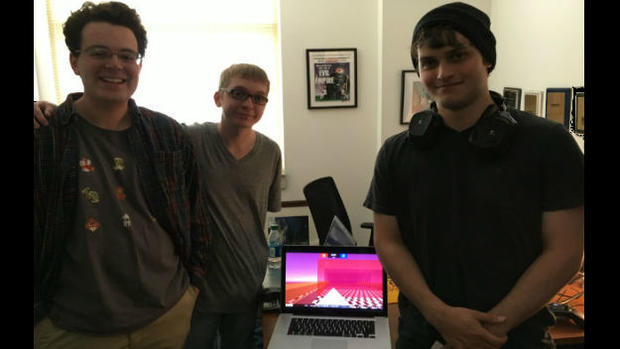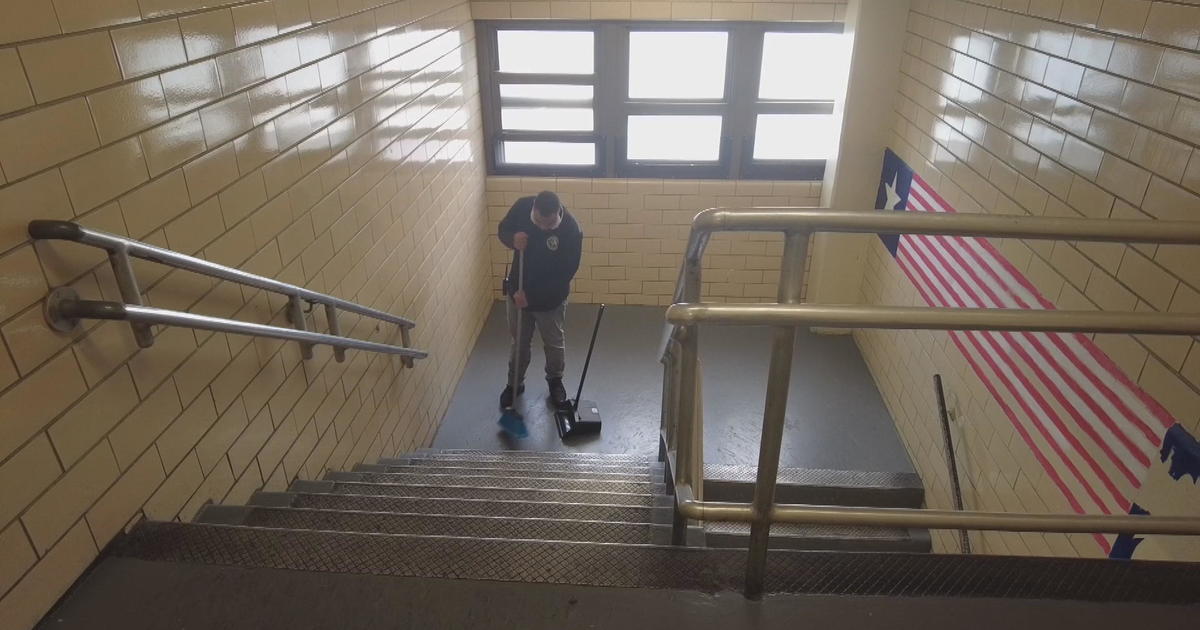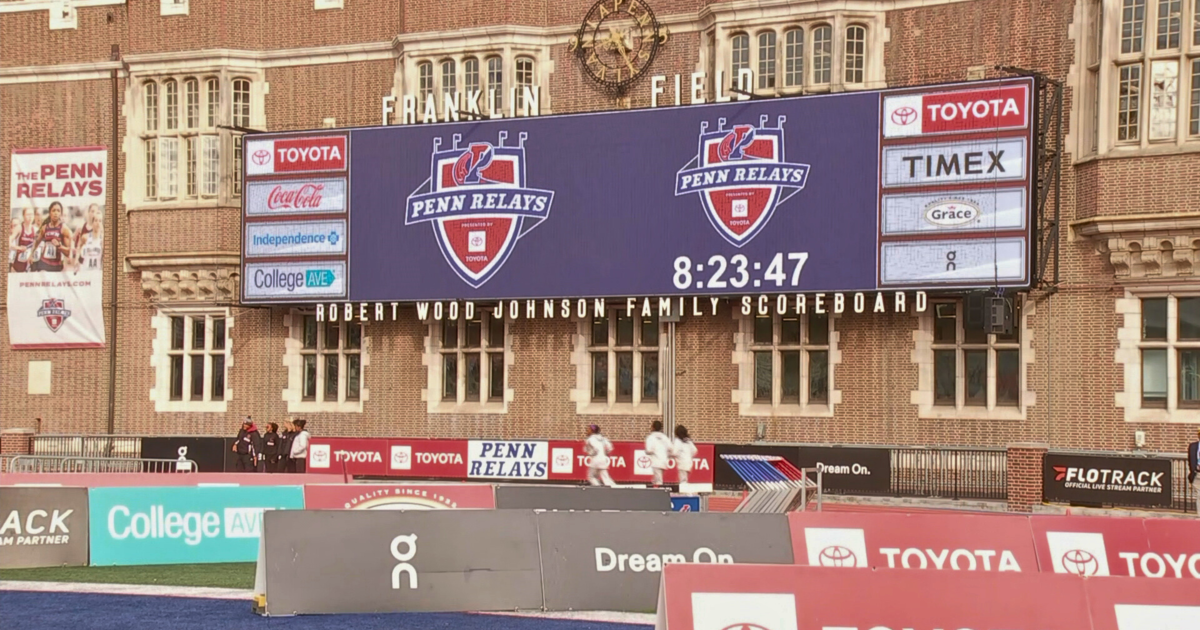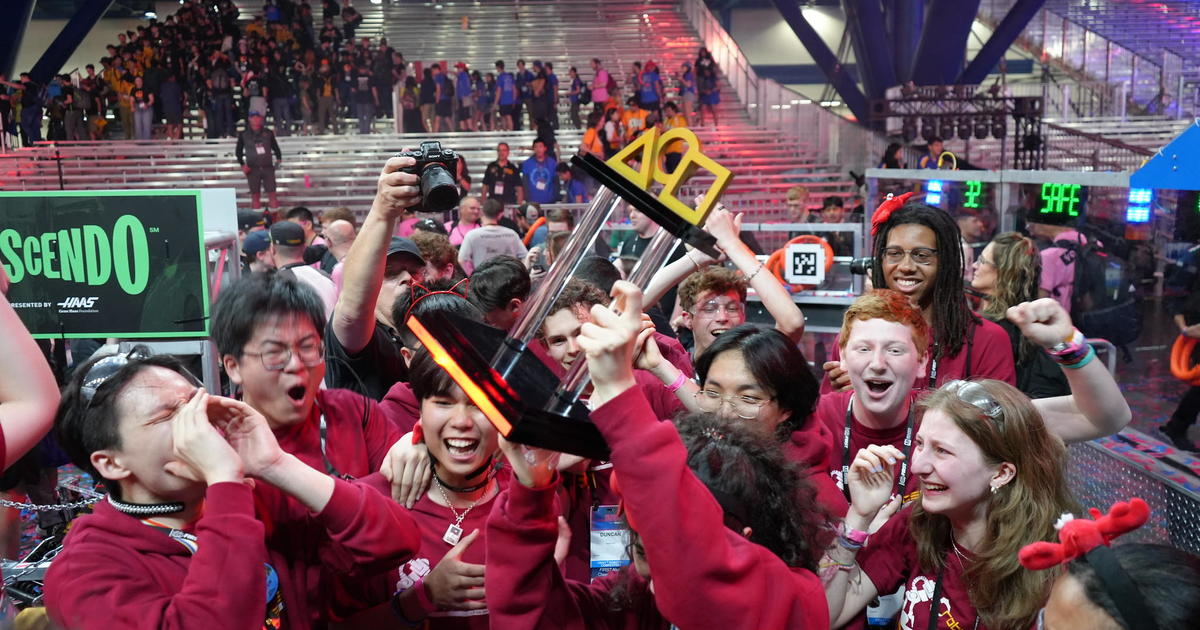A 'Video Game' For The Blind: Drexel Students Bring Paralympic Sport To The Screen
By KYW tech editor Ian Bush
PHILADELPHIA (CBS) -- It's a fixture of the Paralympics that's heading to the virtual world.
Drexel University students have created a 'video game' that translates Goalball to the screen by favoring sound over sight.
Just like its real-world counterpart in which bells are embedded in the game ball, Project Goalball is designed for the blind.
"You need it to be entertaining," says senior computer science major Colton Terrace. "You want it to sound exciting when the ball goes off. You want it to sound exciting when they land a goal. You want the ref and the audience there."
READ: When Drinking On The Job Is Part Of The Job
To accomplish all that -- and, most importantly, for the player to know where the ball is -- without visuals, Terrace and other team members recorded a library of audio for the game.
"We went into one of Drexel's sound labs," he explains. "We tried to capture every single state the ball could be in -- so when the ball is rolling around in the game, it will string together a combination that will emulate the ball in the real world."
Players wear headphones. Say the ball is bouncing toward the left of the goal: the bells steadily grow louder in the defender's left ear.
The game is played on PC with Xbox and PlayStation controllers, which allow participants to feel the game as well.
"When you get near the ball, there are vibrations in the controller that tell you when you can pick it up," says senior John Frankel. "If you bump into it, you have a much stronger vibration."
That haptic feedback -- a tactile sensation -- adds to the sense of realism in a game in which three-player teams try to score goals on each other to rack up points.
"We also wanted to make sure they could feel footsteps and the scuffing of their hands when they move the ball," adds Terrace. "Not only do the players want to understand what's going on, but they want it to be entertaining."
In the physical world, goalball players who are partially sighted wear blindfolds to level the field with those who are blind. In the Drexel team's digital version, coded with the Unity programming language, the idea is the same: while the demo for sighted observers shows a court and a ball, the real game occurs on a black screen and includes auditory cues from the referee.
READ: Police Track Down Burglary Suspects By Tracing Stolen Lottery Tickets
The project is guided by Drexel computer science professor Jeff Salvage, who says the team has received invaluable feedback from Overbrook School for the Blind. For six months, students there have been serving as beta testers.
There are a number of traditional 'video games' playable by those with vision impairments, thanks to sound design and audio cues. The American Foundation for the Blind maintains a list of audio-based games. But the Drexel students believe the experience they've built around this sport -- one that itself is designed for blind players -- is unique.
"There isn't anything like it that was easily Google-able," notes team leader TJ Heiney. "There are lots of games that are playable by the visually impaired and others that have certain accessibility features built in, but this is the first one designed for them with them in mind."
The Drexel students hope the university will host an international goalball tournament using their software. For now, they're looking to the next group of computer science majors to build upon the momentum they've created -- adding features and releasing a market-ready product.
"Our biggest goal was to get something for the kids to play and enjoy and have fun," Heiney says. "As long as that's the case, then we've succeeded -- regardless of anything else."




